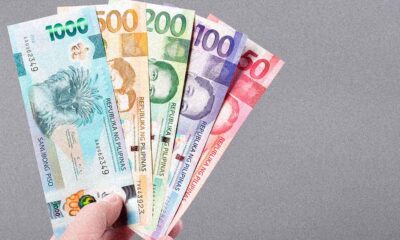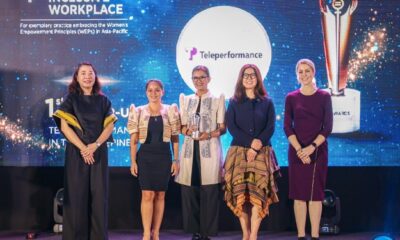News
DSWD, DILG Start Cleansing 4ps List Thru Listahanan 3
The Department of Social Welfare and Development (DSWD) and the Department of the Interior and Local Government (DILG) will start to narrow down legitimate and qualified Pantawid Pamilyang Pilipino Program (4Ps) beneficiaries following the signing of the Memorandum of Understanding (MOU) for Listahanan 3 between the two departments.
The Listahanan or the National Household Targeting System for Poverty Reduction (NHTS-PR) is an information management system that identifies ‘who and where the poor are’, making available a database of poor families as reference in identifying potential beneficiaries of social protection programs such as the 4Ps.
DILG Secretary Eduardo M. Año says that DSWD’s Listahanan 3 is a viable tool to ensure equitable distribution of resources and services to deserving poor Filipino families and guarantees the DILG’s support and assistance in its implementation.
“Sa pamamagitan ng Listahanan 3, makatitiyak tayo na sa totoong mga mahihirap at nangangailangang pamilya lamang maihahatid ang tulong mula sa pamahalaan. This master list will guarantee that no non-poor families will benefit from the programs of the government such as the 4Ps,” said Año.
“Marami ng mga report na nagsasabi na may mga pamilya na hindi naman mahihirap ang nabibigyan ng tulong mula sa 4Ps at ito ang nais nating iwasan sa pamamagitan ng Listahanan ng DSWD. Makaaasa kayong katuwang ninyo ang DILG sa pagpapatupad nito,” he adds.
The DILG Secretary nonetheless warned all LGUs that they should only facilitate and not influence the survey process. “Our intent is to clean up the list so we will not tolerate political intervention by local politicians in what is essentially a non-political activity,” he added.
He said that with the tight allocation of the national budget, it is imperative that government programs like 4Ps which is projected to aid millions of Filipinos are properly distributed to deserving recipients.
Latest data from the DSWD states that the 4Ps is being implemented in 144 cities and 1,483 municipalities in 80 provinces, with a total of 4,876,394 registered households since the program started in 2008.
DILG Undersecretary and Spokesperson Jonathan Malaya added that the DILG, with its mandate to supervise the local government units (LGUs), commits to assist DSWD in carrying out the goal of Listahanan 3 which is to conduct a nationwide household assessment to gather necessary data for the information management system.
“The DILG will make certain that the stipulations of today’s MOU will be met. We commit to be a consistent partner of the DSWD in carrying out Listahanan by ensuring that LGUs are on board in completing this database of poor families,” Malaya said during the signing ceremony.
The DILG Undersecretary says that the Listahanan nationwide household assessment has four phases starting from the preparatory, data collection, validation and finalization and until the report generation phase “requiring the commitment and participation of all LGUs nationwide.”
According to the MOU between DILG and DSWD, for the Preparatory Phase, the DILG must enjoin LGUs to designate a Focal Person who shall assist the DSWD throughout the conduct of the Listahanan assessment; assist in mapping of households within the area of jurisdiction of the Barangay; and conduct of barangay assemblies regarding Listahanan, among others.
“Mahalaga na marating ng mga surveyor mula sa DSWD ang mga mahihirap nating kababayan sa mga pamayanan upang masiguro na makakarating sa kanila ang tulong ng pamahalaan at doon malaki ang magiging bahagi ng DILG,” says Malaya.
Meanwhile, some of the other responsibilities of the LGUs are to secure the person and property of the field personnel during the conduct of the enumeration proper and any activity related to the conduct of the household assessment during the Data Collection Phase; and creation of the Barangay Verification Team (BVT), Creation of the Local Verification Committee (LVC), and Identify and allocate space for receiving grievances for the Validation and Finalization Phase.
Reports Generation Phase wherein the finalized “profile of the poor” will be disseminated to national government agencies, non-government organizations, LGUs and other social protection stakeholders is slated in July 2020. (DILG PR)

































